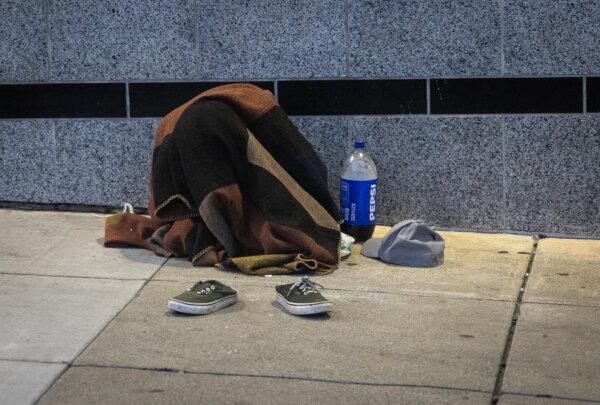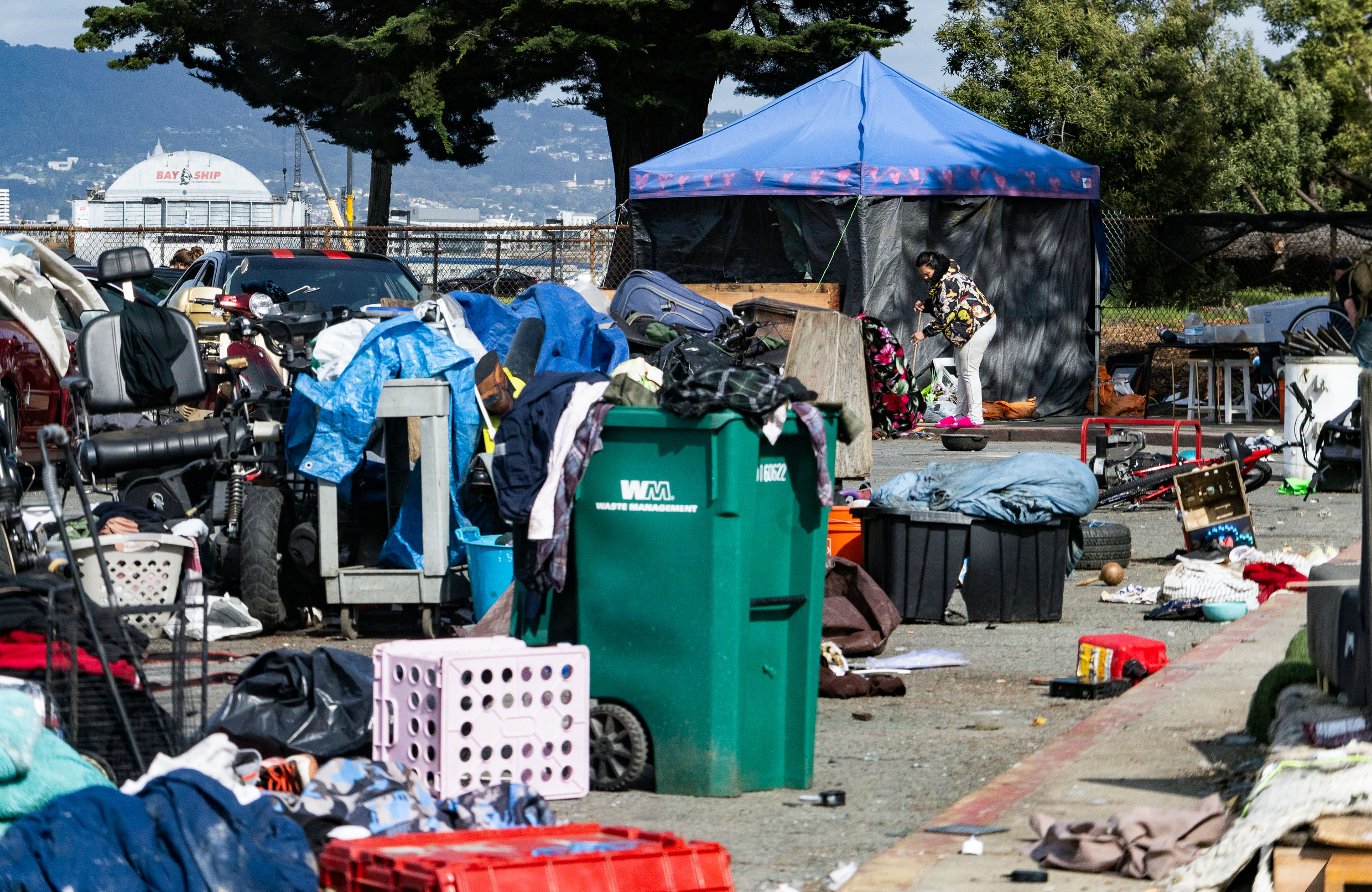Despite spending more than $24 billion to combat the crisis over the past five years, California has seen its homeless population continue to surge, in tandem with a deadly overdose epidemic and deteriorating public safety in cities like Los Angeles and San Francisco.
Now, according to results of a statewide audit, it turns out no one knows how much is being spent on state-funded homelessness programs—or if any of them are working.
That’s because California’s Interagency Council on Homelessness (ICH), tasked with overseeing and evaluating the state’s nine agencies and 30 programs devoted to combatting homelessness, stopped collecting and reporting data in 2021.
This is despite “the significant amount of additional funding the state awarded to these efforts in the past two years,” California State Auditor Grant Parks wrote in a letter to Gov. Gavin Newsom and legislative leaders that accompanied the report.
The 18-member agency, formed in 2017 to develop and implement the state’s Housing First model, last year published program costs and outcome data related to fiscal years 2018-2019 through 2021, but “currently has no plans to perform a similar assessment in the future,” according to the audit.
Auditors further contend Cal ICH has not aligned with its statutory goals, including measuring program-specific outcomes, and is otherwise not inspiring confidence it will take steps to reach those goals. What data is available, the report said, is unreliable due to widespread errors, quality issues, incomplete data, and lack of consistent methodology.
As a result, lawmakers and the public are left to guess whether approaches to the complex and entrenched problem are working. Without knowing if a program helps, or even hinders, efforts to prevent or end homelessness, the state has continued to generously fund programs as it slides deeper into a budget deficit.
Sen. Dave Cortese, who requested the audit last year along with a bipartisan coalition of legislators, said the “balkanized” approach has led to a “data desert,” leaving the state and the public unable to answer basic questions about program effectiveness.
Sen. Roger Niello, who also solicited the audit, pointed to the “concerning paradox” California now faces: “Despite an exorbitant amount of dollars spent, the state’s homeless population is not slowing down. These audit results are a wake-up call for a shift toward solutions that prioritize self-sufficiency and cost effectiveness.”
Since 2013, California’s homeless population has increased 53 percent, currently hovering around 180,000.
Rep. Kevin Kiley, writing on X (formerly Twitter), called the results “infuriating,” and “even worse than expected,” noting he had first asked for an audit in 2020 but “Newsom intervened to kill it.”
Most placements of homeless people into interim housing are not resulting in permanent housing, according to the report, which identified 86 percent of state programs are interim placements, only 13 percent of which exit to permanent housing.

A homeless person covers up with a blanket in San Francisco on March 7, 2024. (John Fredricks/The Epoch Times)
Results were better for people placed in permanent housing—more than 80 percent exited to some other type of permanent housing.
The much-anticipated results land during a tense period for Los Angeles policymakers, with a contentious lawsuit and several audits underway, amid widespread criticisms over how the city and county administer, report, and fund their homelessness programs.
The state audit zeroed in on five programs and two cities, San Jose and San Diego, which it determined have not “consistently evaluated the effectiveness of its programs.” But lawmakers took the findings to be indicative of widespread issues.
“We’re not singling out any agency or city,” Mr. Cortese said. “If we’re seeing these issues in cities as large and sophisticated as San Jose and San Diego, it stands to reason that these issues are pervasive in communities across California.”

Homeless men walk the streets of Los Angeles on March 4, 2024. (John Fredricks/The Epoch Times)
Two of the five programs assessed were deemed to be “likely” cost-effective, while the state lacked clear outcome data necessary to evaluate the other three.
In the case of Project Room Key, the pandemic-era program that converted hotels to housing, those converted units, averaging around $144,000, were deemed cost-effective compared to the average costs for building new affordable units in California, around $380,000 to $570,00 each.
CalWorks Housing Support Program, which helps families at risk of falling into homelessness, was also “likely” cost-effective, spending an average of $12,000 to $22,000 per fiscal year per family, compared with the estimated $30,000 to $50,000 per year taxpayers spend on a single chronically homeless person.
Another program, the Homeless Housing, Assistance and Prevention Program, provides everything from rental assistance to emergency shelter and was funded with more than $4 billion since 2019. Auditors said inconclusive data prevented an assessment of programs in Los Angeles, San Diego, San Jose, and San Francisco, where nearly one-third of the exits left for “unknown” destinations”—which could mean a refusal to answer, uncollected data or a range of other outcomes, preventing auditors from determining whether people actually exited homelessness or not.
Auditors recommended Cal ICH develop a “scorecard” on its website by March 2025 to make performance outcomes and cost data more transparent to both lawmakers and the public.
In a response, Cal ICH Executive Officer Meghan Marshal said the agency “generally agrees” with the recommendations and will take steps to implement “where possible,” but noted it had limited authority and resources to complete the requested up-to-date reporting, and that the Legislature had only asked that it complete a “onetime” assessment of program funding and outcomes.
Marshall also pushed back on criticisms of her agency’s data management, noting an existing system already standardizes much of the data it receives and can’t correct underlying data submitted from reporting agencies.














